The she shashishalhem language is the traditional language spoken by the shíshálh Nation which is a Coast Salish dialect.
In the early 1970s the Elders of the shíshálh Nation started efforts to revive the language with the assistance of Ron Beaumont, a linguist and professor from the University of British Columbia. Together they created a 1000 page plus Sechelt Dictionary, published in 2011 and worked with the shíshálh Education Department to provide on-going translation for curriculum development that includes songs, dances, legends, prayers and classroom instruction. The provincially approved curriculum that is taught at mem7iman Child Development Centre, Kinnikinnick Elementary School, Chatelech Secondary School and Capilano University. The Sechelt Dictionary can be purchased via the Education Department and at the tems swiya Museum. Dictionary cost is $25 for Nation members, $50 for non-Nation members.
Learn to pronounce the traditional names
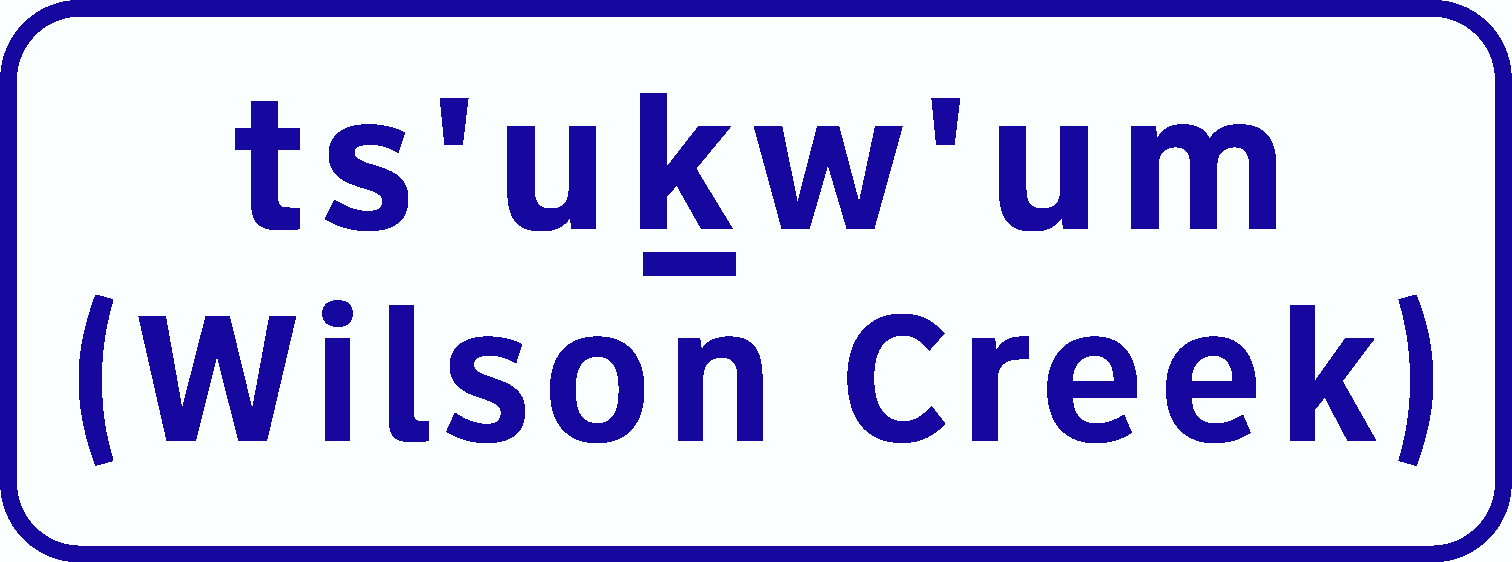
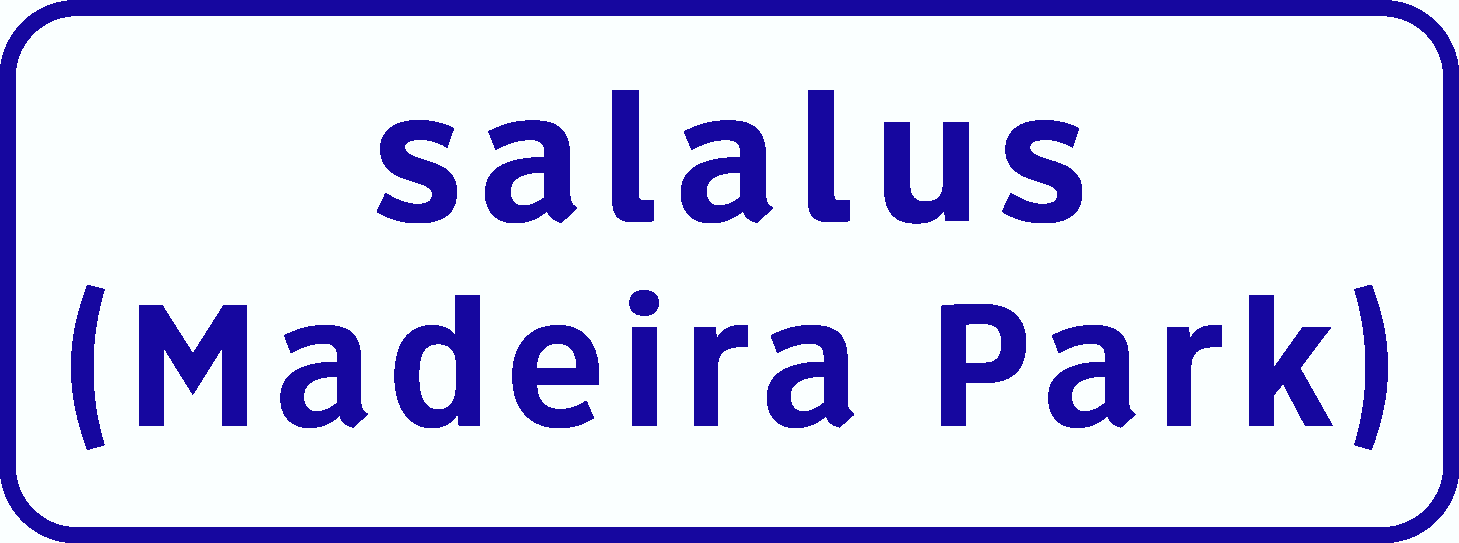
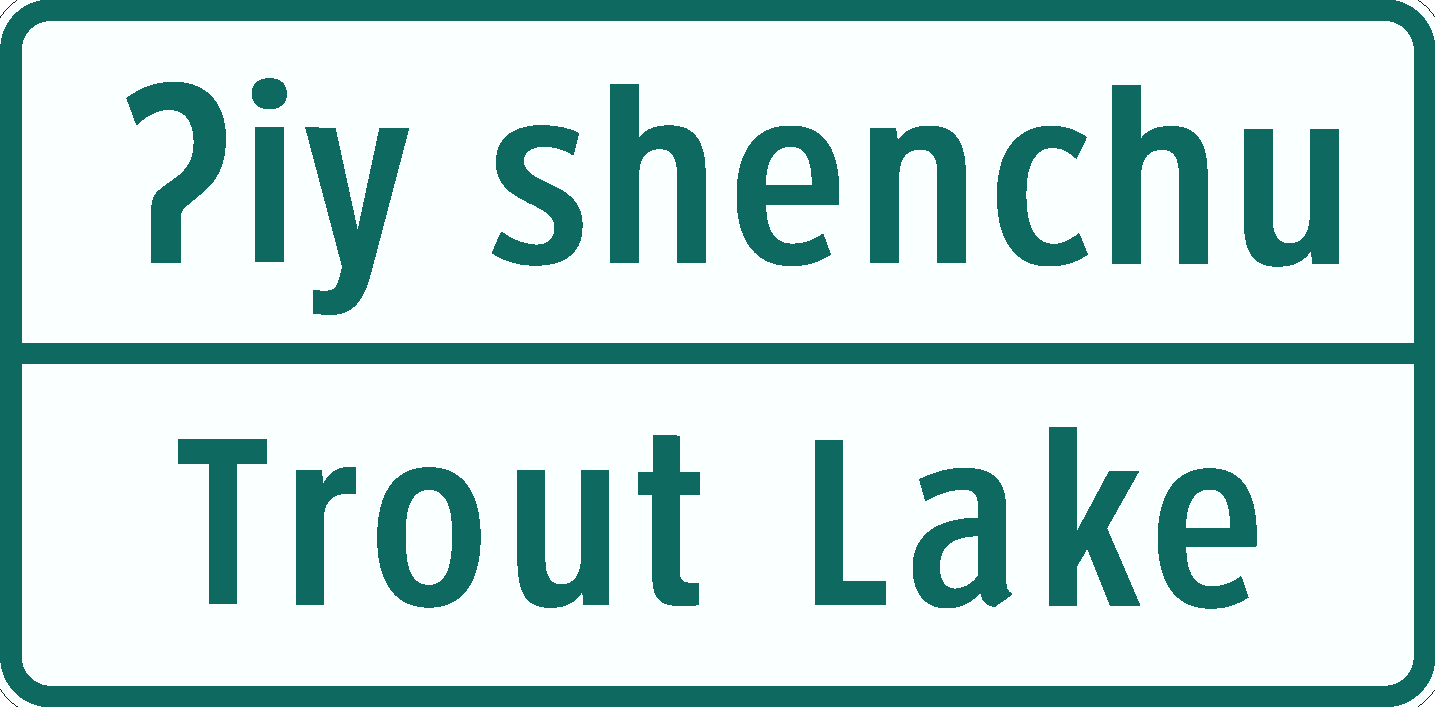
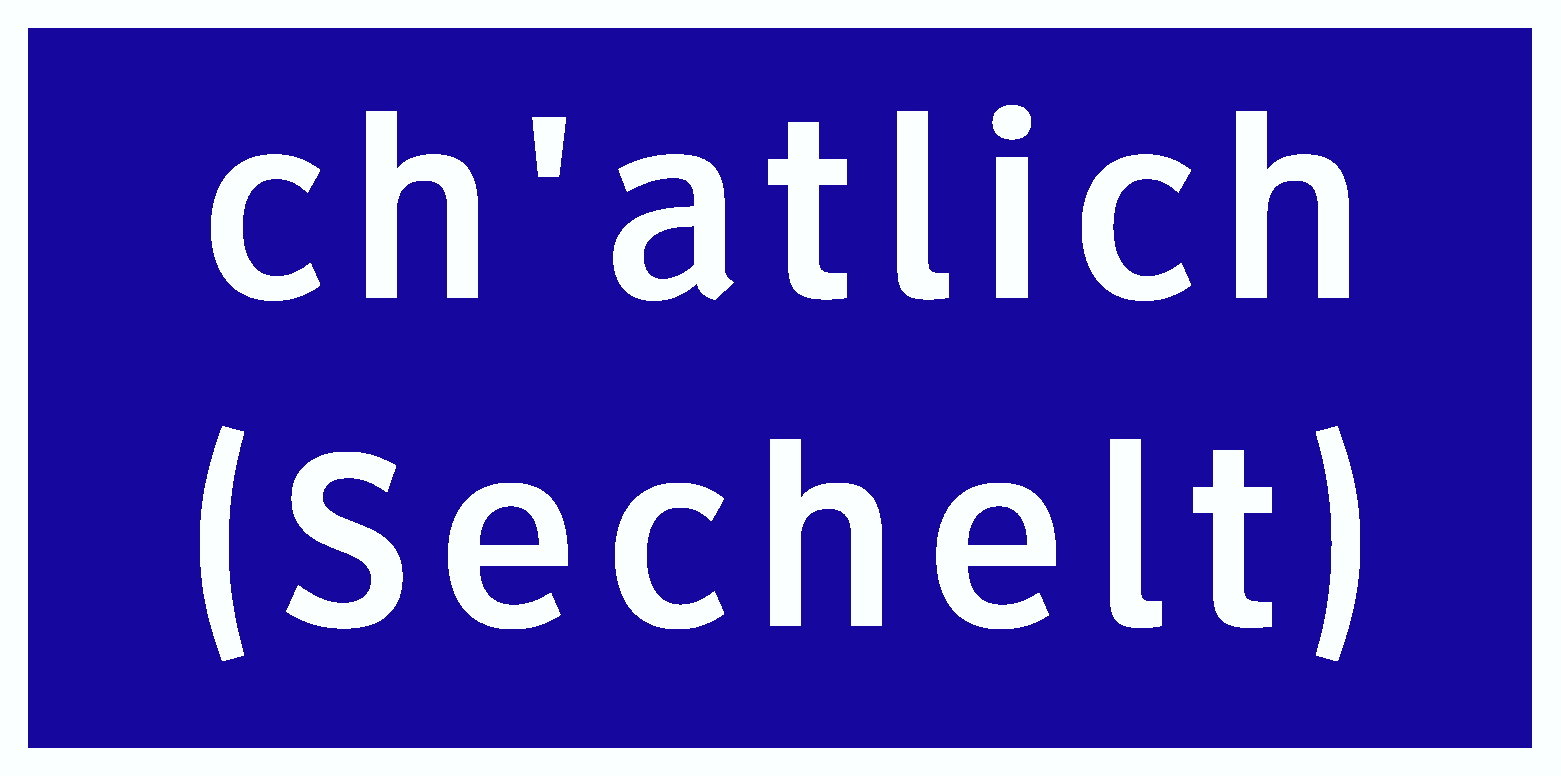
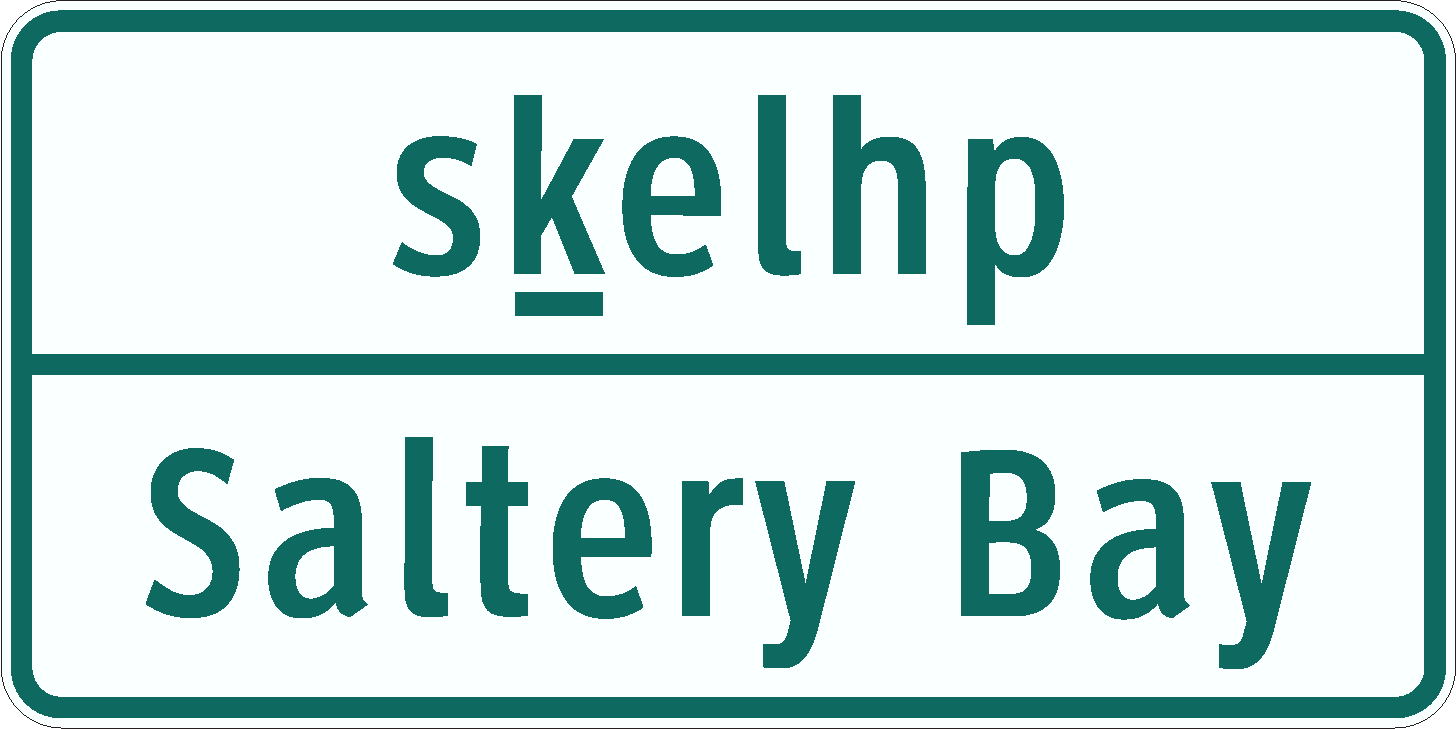
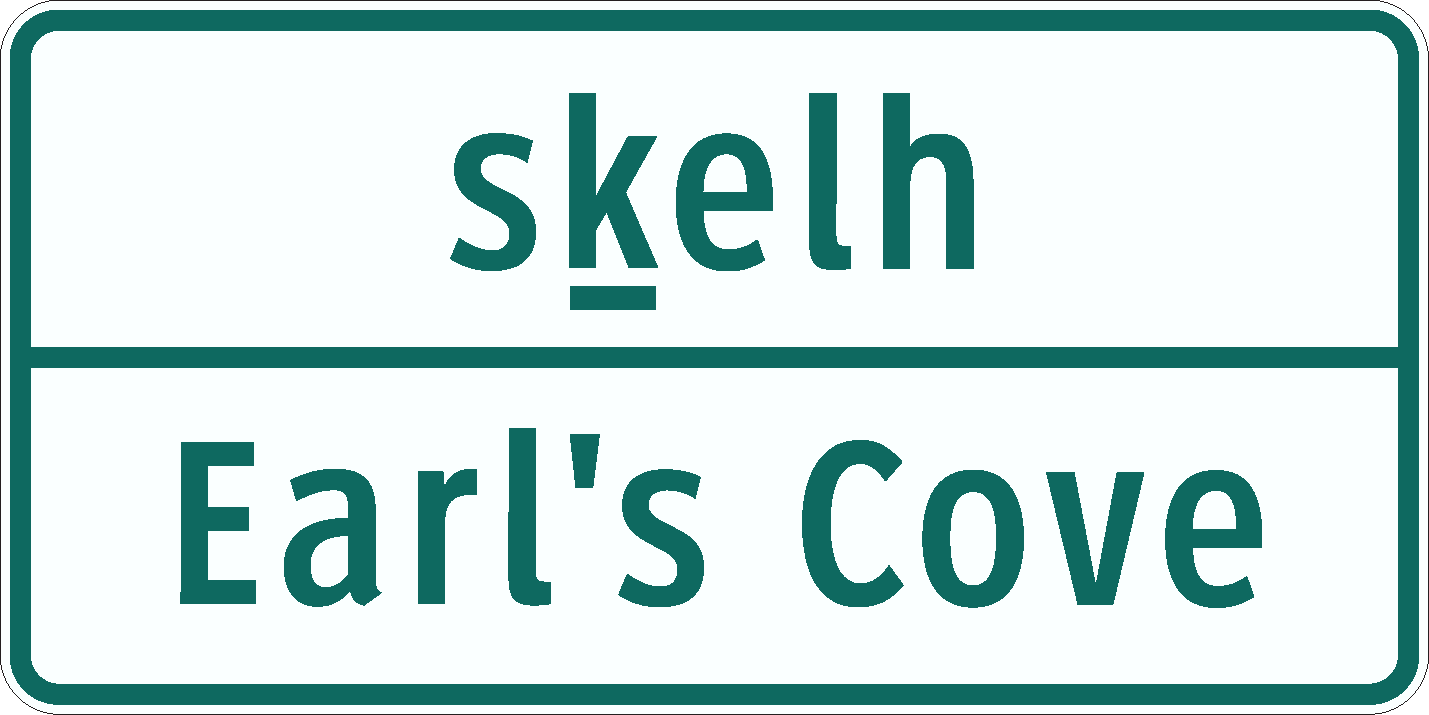
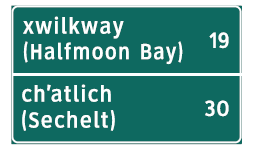
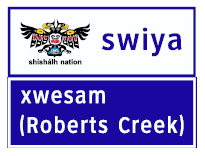
The Stewardship and Territorial Land Management Division includes the following departments: Rights and Title, Resource Management, and Culture.
To learn the she shashishalhem language, please listen to our audio files of beginner words and phrases or follow the link to the First Voices website, a site dedicated to the preservation of First Nation’s languages.
- Come in – mi la
- Good bye (said to one person) – tsu la
- Good Morning – ?iy te kwiy kwiy
- How are you – kw a chxw ?t ?iy
- I am going – tsu chen skwa
- I am very good – ?iy mut
- Sechelt – shishalh
- Thank you (said to one person) – ?ul nu msh chxw
- Thank you (said to group) – ?ul nu msh chalap
- Welcome – ?imash ?imash

